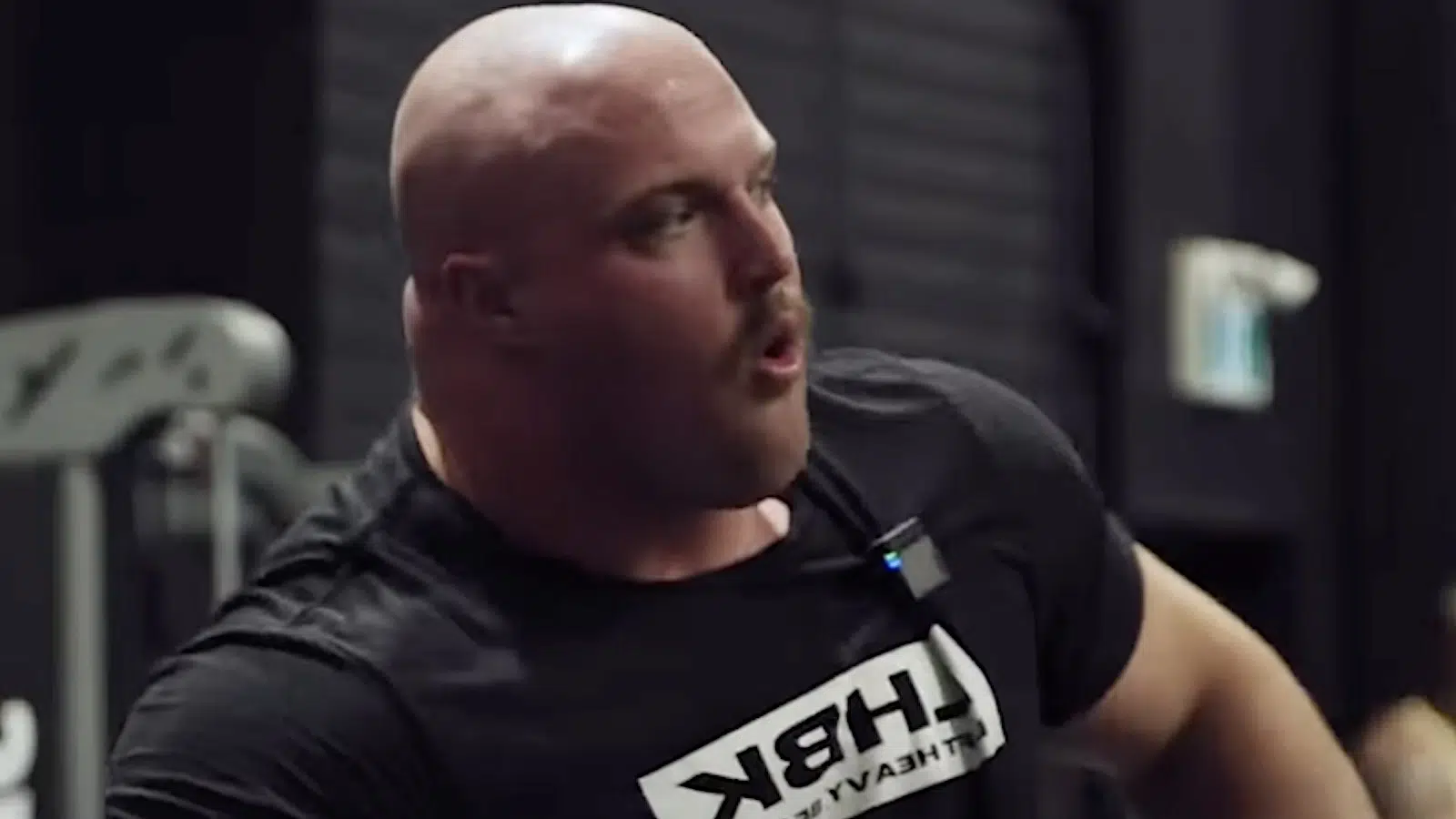How to Adjust Training Frequency


Hooper Lays the Foundation of Strength Training for Novice, Intermediate, and Advanced Lifters
While there’s crossover between training for maximal strength and hypertrophy, they differ fundamentally. “We’re not training our muscles; we’re training our nervous system,” explained Mitchell Hooper, the 2023 World’s Strongest Man and 2024 Strongest Man on Earth.
Unlike growing muscles, getting as strong as possible is believed to revolve around skill building and nervous system adaptation. Hypertrophy still influences strength, but nerve-muscle interaction plays a major part.
How Frequently Should You Train?
Hooper’s simple answer? “Train as frequently as you can recover from.” This seems to be the universal consensus for optimizing performance.
You’re doing it right by progressing consistently, but if you’re irritable, have difficulty sleeping, or have a poor appetite, you may need more recovery. Structure training to allow tendons and ligaments to keep up.
How to Train for Peak Strength
Hooper suggests periodized strength training to balance recovery and strength gains. This involves alternating workout intensity and volume in spurts, aiming for higher peaks until you top out strength gains. Then, shift focus to hypertrophy or endurance training to recharge before another strength-building phase.
Hooper’s Training Frequency Guidelines
To help optimize strength training frequency, Hooper established some practical guidelines for all skill levels:
Novice Lifters
- Frequency: 4-7 times weekly per movement.
- Why: Beginners need more practice to master lifting techniques. Train with moderate intensity to learn quickly without overtraining.
Intermediate Lifters
- Frequency: 3-5 times weekly per movement.
- Why: Between several weeks to six months of training, neural efficiency usually peaks. Overtraining risk increases, so training variety is essential.
- Example of an intermediate routine:
- Workout 1: Heavy, low-rep training (1-5 reps at 6-9 RPE).
- Workout 2: Address weaknesses (e.g., unilateral work).
- Workout 3: Moderate intensity, low volume for power and accessories.
“The answer to increasing frequency is decreasing intensity and total volume,” Hooper affirmed.
Advanced Lifters
- Frequency: 1-3 times weekly per movement.
- Why: The closer you are to your genetic potential, injury risk increases significantly due to your ability to lift heavy loads. Recovery becomes a limitation.
“Few advanced lifters can train [certain lifts] thrice weekly.” Hooper asserted. It has nothing to do with the nervous system. “Regardless of how easy [700 pounds] moves, it’s still 700 pounds.” How many times you can train a lift weekly depends on the exercise. Squats and deadlifts are usually more taxing than shoulder presses.
Hoopers 3 Recovery Principles
Realizing strength potential is a pipe dream without healthy habits. Hooper outlined three factors that make or break progress:
- Nutrition: Balance macronutrients and micronutrients to fuel performance.
- Sleep: Quality sleep is vital for health and recovery. Research suggests 7-9 hours nightly is most optimal. (1)
- Stress Management: Controlling emotional stress is crucial for maximizing progress.
Conclusion
Hooper’s guidelines provide a solid foundation for novice, intermediate, and advanced lifters to optimize their strength training frequency. By understanding the importance of recovery, nutrition, and stress management, individuals can make significant progress in their strength training journey.
FAQs
Q: What is the most important factor in strength training?
A: Nervous system adaptation plays a major part in getting as strong as possible.
Q: How often should I train?
A: Train as frequently as you can recover from, and adjust your frequency based on your progress.
Q: What are the three recovery principles?
A: Nutrition, sleep, and stress management are the three factors that make or break progress in strength training.
Recent Posts
Why you don’t need to stress about cortisol ruining your waistline
If you’ve been unfortunate enough to scroll through TikTok lately, the algorithm may have convinced…
How to Style Your Workout Gear for Both the Gym and Everyday Wear
30 seconds summary This article highlights how integrating workout gear into daily wear supports…
Dementia care: are terms of endearment like sweetheart comforting or condescending?
In the emotionally complex world of dementia care, communication is more than just what we…
What Is High Functioning Autism and How Is It Diagnosed?
"High-functioning autism" (HFA) is a term used to describe people with a certain level…
What Happens When You Drink Lemon Turmeric Water Every Morning?
Lemon turmeric water is a refreshing way to get antioxidants and gut health benefits into…
5 Best Triceps Exercises to Achieve the Coveted Horseshoe
In the ever-evolving world of hypertrophy science, bodybuilding expert Dr. Mike Israetel shared what…


